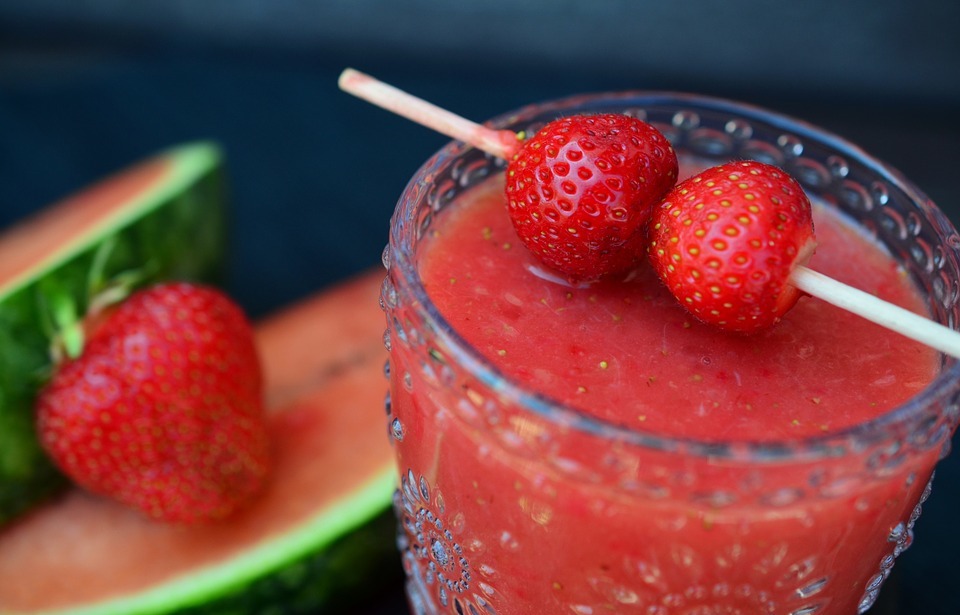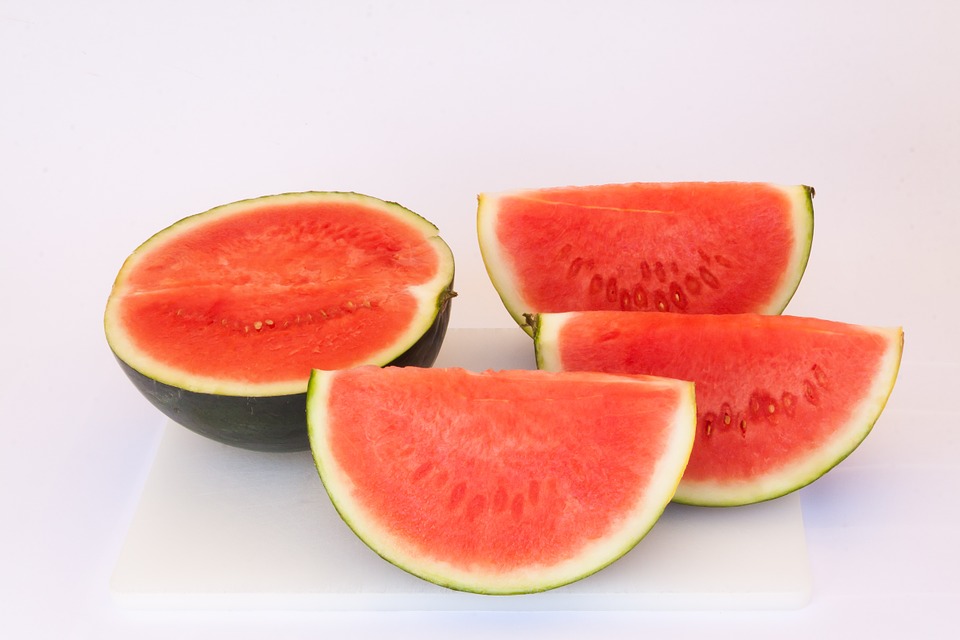Watermelon, a sweet and refreshing summer fruit, often sparks curiosity among dog owners: can their furry companions enjoy this juicy treat? The answer, while cautiously positive, requires careful consideration and understanding of the potential benefits and risks involved.
Part 1: Exploring the Nutritional Value of Watermelon for Dogs

1.1 A Source of Essential Vitamins and Minerals
Watermelon is a treasure trove of essential nutrients that can benefit dogs. Its vibrant red flesh is rich in vitamins A, B6, and C, crucial for immune system function, eyesight, and bone health. It also boasts a healthy dose of potassium, which plays a role in muscle function and hydration, and lycopene, an antioxidant linked to reduced risk of certain cancers.
1.2 Hydration Benefits
Watermelon's high water content makes it an excellent source of hydration, particularly beneficial during hot summer months when dogs can easily become dehydrated. The water content can help regulate body temperature and support healthy kidney function.
1.3 Fiber for Digestive Health
The presence of dietary fiber in watermelon can aid in digestion. Fiber promotes regular bowel movements and helps to maintain a healthy gut microbiome.
Part 2: Potential Risks and Considerations

2.1 Seeds and Rind: A Choking Hazard
The seeds and rind of watermelon pose a significant choking hazard to dogs. Their tough texture can also cause digestive issues like constipation and intestinal blockages. It is crucial to meticulously remove all seeds and rind before offering watermelon to your canine companion.
2.2 Sugar Content: A Sweet Treat in Moderation
Watermelon is naturally sweet due to its high fructose content. While a small amount of watermelon is unlikely to cause issues for healthy dogs, excessive consumption can contribute to weight gain, dental problems, and even pancreatitis in susceptible dogs.
2.3 Pesticide Concerns: Thorough Washing is Key
Like many fruits and vegetables, watermelon can be treated with pesticides during cultivation. These chemicals can be harmful to dogs, so it is imperative to wash watermelon thoroughly before offering it to your pet. Consider purchasing organic watermelons to minimize pesticide exposure.
2.4 Individual Dog Sensitivities: A Cautious Approach
Every dog is unique, and some may be more sensitive to certain foods than others. Some dogs may experience digestive upset, such as diarrhea or vomiting, after consuming watermelon, even in small amounts. It is essential to introduce watermelon slowly and observe your dog for any signs of discomfort.
2.5 Watermelon Toxicity: Rare but Possible
While watermelon itself is not inherently toxic to dogs, potential contamination can occur. For example, if the watermelon has been treated with pesticides or if it has been contaminated with bacteria, it could make your dog sick. Choosing high-quality watermelon and washing it thoroughly can help mitigate these risks.
Part 3: How to Feed Watermelon to Your Dog

3.1 Choosing the Right Watermelon
Select ripe, juicy watermelons with a deep red colour. Avoid watermelon that is cracked, bruised, or moldy. Choosing watermelon with a firm exterior and a hollow sound when tapped indicates ripeness.
3.2 Preparing the Watermelon
Cut the watermelon into small, bite-sized pieces and remove all seeds and rind. You can also freeze the watermelon for a refreshing treat. Freezing can make the watermelon easier for dogs to chew and can help with hydration on hot days.
3.3 Starting Slowly
Introduce watermelon to your dog gradually, starting with a single, small piece. Observe for any signs of digestive upset, such as diarrhoea, vomiting, or lethargy. If your dog experiences any issues, discontinue feeding watermelon.
3.4 Limiting Portions
Watermelon should be offered as a treat, not as a primary food source. Limit your dog's intake to a few small pieces per day, adjusting the amount based on their size and weight.
3.5 Considering Individual Needs
Dogs with pre-existing health conditions, such as diabetes or obesity, may have different dietary restrictions. Consult with your veterinarian to determine if watermelon is appropriate for your dog's specific needs.
Part 4: Signs of Watermelon Toxicity
If your dog exhibits any of the following symptoms after consuming watermelon, it is important to contact your veterinarian immediately:
- Vomiting
- Diarrhoea
- Abdominal pain
- Loss of appetite
- Lethargy
- Excessive thirst
- Difficulty breathing
Part 5: Alternatives to Watermelon
If you are searching for safe and healthy treats for your dog, explore these options:
- Apples (without the core and seeds)
- Bananas
- Blueberries
- Carrots
- Celery
- Cucumber
- Green beans
- Peaches (without the pit)
- Strawberries
Part 6: FAQs
6.1 Can dogs eat watermelon rind?
No, dogs should not eat watermelon rind. It is tough and difficult to digest, and it can cause choking and intestinal blockages.
6.2 Can dogs eat watermelon seeds?
No, dogs should not eat watermelon seeds. They are a choking hazard and can cause digestive problems.
6.3 How much watermelon can my dog eat?
The amount of watermelon your dog can eat depends on their size and weight. A small dog may only need a few small pieces, while a larger dog can handle a little more. Always start with a small amount and monitor your dog for any signs of digestive upset.
6.4 Can I give my dog watermelon every day?
Watermelon should be given as a treat, not as a regular part of your dog's diet. Too much sugar can lead to weight gain and other health problems.
6.5 What if my dog eats a lot of watermelon?
If your dog eats a large amount of watermelon, monitor them closely for any signs of digestive upset. If you are concerned, contact your veterinarian.
6.6 Is watermelon good for dogs with diabetes?
Watermelon is high in sugar, so it's not recommended for dogs with diabetes. Consult your veterinarian for guidance on appropriate treats for your dog's specific needs.
6.7 Can I give my dog watermelon juice?
It's best to avoid giving your dog watermelon juice. The high sugar content can be harmful, and the juice can also be a choking hazard.
Everyone is watching
-

Can Dogs Eat Bananas? A Guide to Safe Treats
DOGS & PUPPIESThis comprehensive guide will delve into the world of canine nutrition, focusing on the popular question: can ...
-

Can Dogs Eat Oranges? (Is It Safe or Toxic?)
DOGS & PUPPIESThis article delves into the question of whether dogs can safely consume oranges. We'll explore the nutrition...
-

Can Dogs Eat Grapes? The Shocking Truth About This Fruit
DOGS & PUPPIESThis article delves into the controversial topic of grapes and dogs, exploring the potential dangers associate...
-

Why Do Dogs Eat Poop? Understanding Coprophagia in Dogs
DOGS & PUPPIESThis article delves into the perplexing phenomenon of coprophagia, the act of eating faeces, in dogs. We explo...
-

Can Dogs Eat Shrimp? A Guide to Safety and Risks
DOGS & PUPPIESThis comprehensive guide dives into the world of shrimp and dogs, exploring the potential benefits and risks a...
